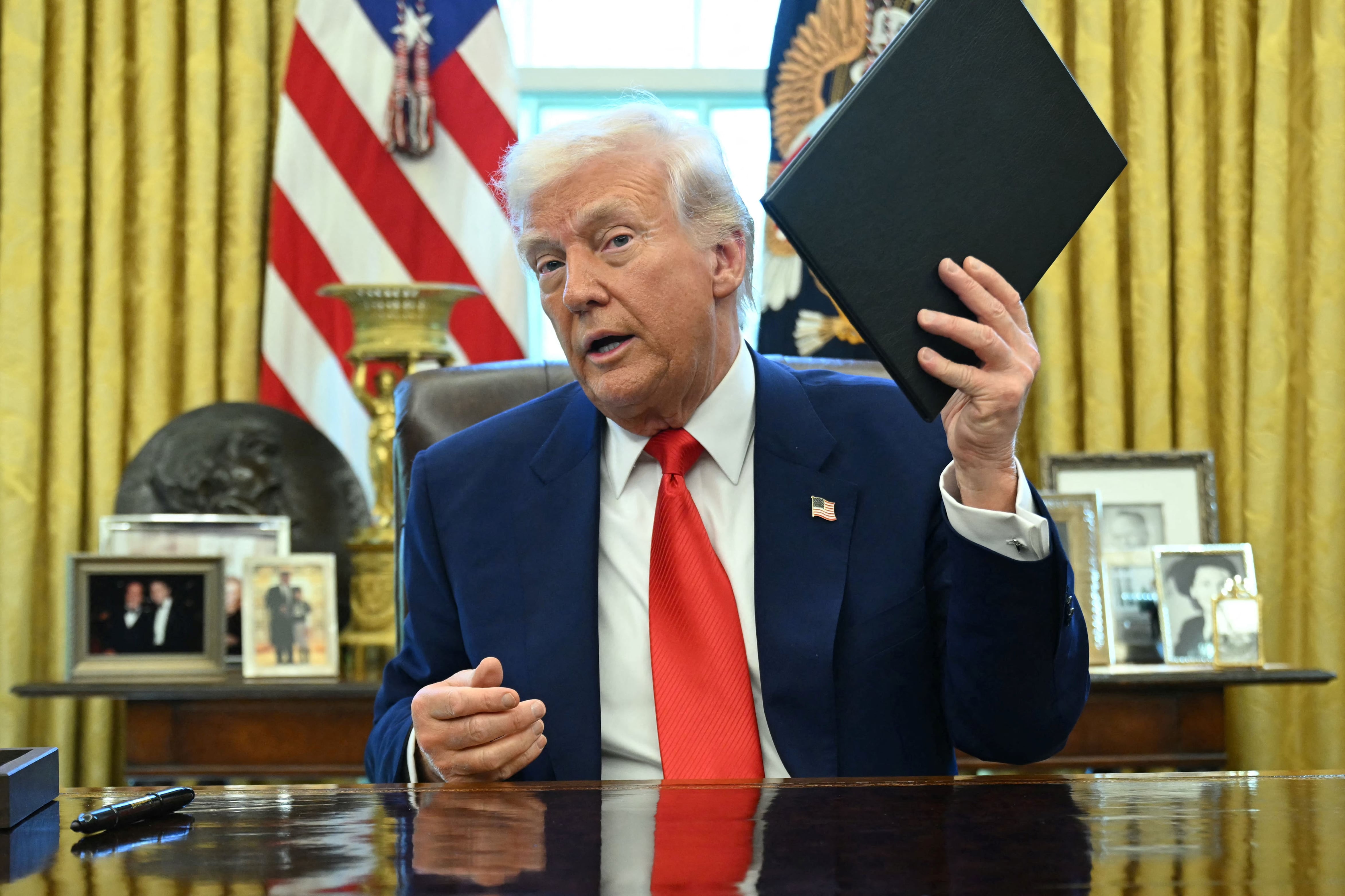Votebeat is a nonprofit news organization reporting on voting access and election administration across the U.S. Sign up for our free weekly newsletter to get the latest.
What happened?
A federal judge said she planned to rule by April 24 on a request to stop parts of President Donald Trump’s sweeping executive order on elections from being enforced or implemented.
What’s the dispute?
Multiple nonprofit groups and Democratic Party committees sued Trump, the U.S. Election Assistance Commission, and other federal agencies over the order he signed in March calling for broad changes in how elections are administered. The plaintiffs argue that the Constitution does not grant the president authority to set rules for elections.
The lawsuits challenge multiple provisions of the executive order, including one that directs the EAC to add a documentary proof-of-citizenship requirement to the federal voter registration form; another requiring the agency to withhold federal funds from states that don’t comply with its requirements; and one prohibiting states from accepting mail ballots postmarked before Election Day, but received afterwards.
The Justice Department argued the order is legal. Michael Gates, a deputy assistant attorney general in the department’s Civil Rights Division, who represented the government at a hearing Thursday, said the provisions of the executive order that are under challenge — including the one concerning a documented proof-of-citizenship requirement — are legal under existing federal laws.
He also argued the plaintiffs hadn’t suffered harm because the government had not yet taken action.
But Sophia Lin Lakin of the ACLU and Danielle Lang of the Campaign Legal Center, lawyers for the plaintiffs, argued that it had taken action. They pointed to a letter sent by the U.S. EAC on April 11, which cited the executive order and asked state election officials for input on adding a documentary proof-of-citizenship requirement to the federal voter registration form. Consulting with state election officials “is part of the statutory process required to change the federal form,” Lakin said during the hearing.
Gates told the judge he had been unaware of the letter when he filed his brief, but that it was an “extra step,” not a formal one, and administrative law processes mean it will take the agency months to add a requirement to the form. The letter “was more or less a brainstorming and an initial first blush to get feedback from elections officials about their initial thoughts,” he said.
Who are the plaintiffs?
Two of the lawsuits were filed by a collection of nonprofit groups, including the League of United Latin American Citizens, the League of Women Voters, the NAACP, and others. Another was filed on behalf of Democratic national party committees and leadership. Additional lawsuits challenging provisions in the executive order are pending in other federal courts, including one by Democratic attorneys general in 19 states and another by the states of Oregon and Washington.
What are they asking for?
The lawsuits by the Democratic and nonprofit groups were filed in U.S. District Court in Washington, D.C., and assigned to Judge Colleen Kollar-Kotelly, who consolidated them. Kollar-Kotelly was nominated in 1997 by former President Bill Clinton. The lawsuits asked her to stop the government from implementing or enforcing the provisions of the executive order under challenge, and, ultimately, to find them unconstitutional.
What happens now?
Kollar-Kotelly said she plans to rule before April 24.
Read more Votebeat coverage of the executive order on elections:
- Trump orders an overhaul of how elections are run, inviting a likely legal challenge
- New Trump order targets barcodes on ballots. Why? And what will that mean?
- With Trump’s executive order, thousands of military voters could see their rights curtailed
- First lawsuits against Trump’s election order cite text of Constitution
- Democratic attorneys general sue Trump over elections executive order
Carrie Levine is Votebeat’s interim editor-in-chief and is based in Washington, D.C. She edits and frequently writes Votebeat’s national newsletter. Contact Carrie at clevine@votebeat.org.





